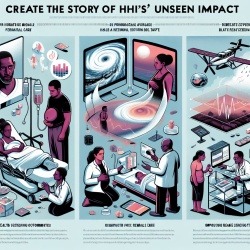The intersection of nursing and mathematical competency has become a growing concern among educators and healthcare administrators. As the demand for proficient nurses increases, so does the need for robust educational models that ensure students possess the necessary skills to safely administer medications. The research article "Nurse Education and Mathematical Competency: Implementation of an Online, Self-Directed, Prerequisite Model" offers valuable insights into addressing these challenges through innovative educational strategies.
The Need for Mathematical Competency in Nursing
Nurses play a crucial role in medication administration, requiring a solid foundation in mathematical calculations. From working with fractions and ratios to converting units of measurement, these skills are essential for ensuring patient safety. However, many nursing students struggle with math anxiety and lack confidence in their abilities. This has prompted nursing programs to explore new methods to enhance mathematical competency.
The Online, Self-Directed Prerequisite Model
The research conducted at a School of Nursing in Ontario, Canada, introduced a Dosage Calculation Competency Test (DCCT) model that leverages online, self-directed learning. This approach allows students to progress at their own pace while ensuring they meet the necessary prerequisites for clinical placements. The model emphasizes flexibility and personalized learning experiences.
Key Features of the Model
- Self-Directed Learning: Students have the autonomy to complete modules at their convenience, fostering independent study habits.
- Personalized Learning Paths: The use of software that adapts to individual learning styles helps students find effective problem-solving methods.
- Contextual Learning: Integration of math skills within clinical simulation labs provides practical application opportunities.
- Social Learning Opportunities: Encouragement of informal peer-to-peer tutoring enhances understanding through collaborative efforts.
Implementation and Outcomes
The transition to the DCCT model involved collaboration with software developers to create tailored online resources. The phased implementation allowed for continuous feedback and adjustments. Notably, the model led to a significant reduction in student failures related to dosage calculations.
Student and Instructor Perceptions
The study revealed mixed responses regarding confidence levels. While many students appreciated the flexibility and relevance of the curriculum, some still expressed concerns about their preparedness for real-world scenarios. Instructors emphasized the importance of critical thinking and estimation skills alongside technological tools.
Recommendations for Nursing Programs
- Mental Estimation and Critical Thinking: Encourage practices that develop these skills alongside traditional calculations.
- Create a Prerequisite Structure: Ensure dosage competency is a requirement before clinical placements.
- Sustain Repetition Across Curriculum: Reinforce math skills throughout all years of study.
- Cultivate Self-Directed and Social Learning: Provide opportunities for both independent study and collaborative learning experiences.
The Role of Technology in Nursing Education
The integration of technology in nursing education is pivotal. Tools like LockDown Browser and Respondus Monitor ensure secure assessments while platforms like Elsevier offer comprehensive learning modules. These innovations support the shift towards more flexible and accessible education models.
Nursing programs must continue to adapt and refine their approaches to teaching mathematical competency. By embracing online, self-directed models, educators can better prepare students for the demands of modern healthcare environments.










